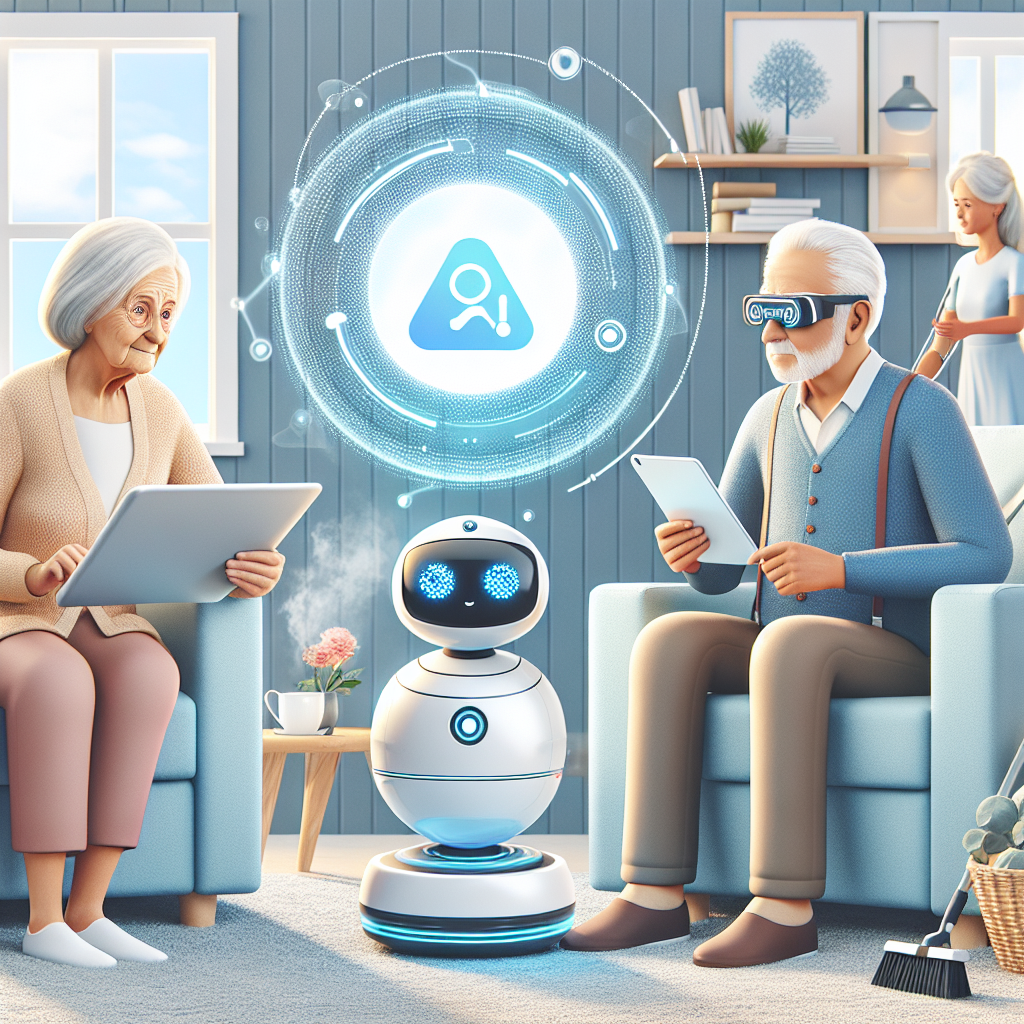As the global population continues to age, the demand for quality care services for seniors is increasing. With advancements in technology, Artificial Intelligence (AI) is being deployed in aging to improve care for seniors. AI has the potential to revolutionize the way care is delivered to the elderly, making it more efficient, personalized, and cost-effective. In this article, we will explore the various applications of AI in aging and how it is transforming the landscape of senior care.
AI Deployment in Aging: Improving Care for Seniors
1. Remote Monitoring and Telehealth:
One of the key applications of AI in aging is remote monitoring and telehealth. AI-powered devices such as wearables and sensors can track vital signs, activity levels, and sleep patterns of seniors in real-time. This data can be analyzed by AI algorithms to detect any deviations from normal patterns and alert caregivers or healthcare providers in case of emergencies. Telehealth platforms powered by AI can also connect seniors with healthcare professionals for virtual consultations, reducing the need for in-person visits and improving access to care for seniors in remote or rural areas.
2. Fall Detection and Prevention:
Falls are a major concern for seniors, as they can lead to serious injuries and a decline in quality of life. AI-powered cameras and sensors can detect falls in real-time and alert caregivers or emergency services. AI algorithms can also analyze gait patterns and predict the risk of falls, allowing caregivers to take preventive measures such as recommending exercise or modifying the home environment to reduce fall risks.
3. Medication Management:
AI can help seniors manage their medications more effectively by providing reminders, tracking adherence, and detecting potential drug interactions. AI-powered apps can create personalized medication schedules based on individual needs and preferences, helping seniors stay on track with their prescriptions. AI algorithms can also analyze medication data to identify patterns and trends, allowing healthcare providers to optimize medication regimens for better outcomes.
4. Social Engagement and Cognitive Stimulation:
Social isolation and cognitive decline are common issues among seniors, leading to loneliness and depression. AI-powered chatbots and virtual assistants can provide companionship and engage seniors in meaningful conversations. Virtual reality (VR) and augmented reality (AR) experiences powered by AI can also stimulate cognitive functions and improve mental health in seniors. AI algorithms can personalize content and activities based on individual preferences, creating tailored experiences for each senior.
5. Predictive Analytics and Personalized Care:
AI can analyze large datasets of health and lifestyle metrics to predict health outcomes and personalize care plans for seniors. By combining data from wearables, electronic health records, and other sources, AI algorithms can identify patterns and trends that may signal potential health issues or changes in condition. This proactive approach allows caregivers and healthcare providers to intervene early and prevent complications, leading to better outcomes for seniors.
FAQs:
Q: Is AI in aging replacing human caregivers?
A: AI in aging is meant to complement human caregivers, not replace them. AI technologies can automate routine tasks, monitor health metrics, and provide personalized care recommendations, allowing human caregivers to focus on more complex and meaningful interactions with seniors.
Q: Are seniors comfortable using AI technologies?
A: Seniors are increasingly embracing AI technologies, especially those that improve their quality of life and independence. User-friendly interfaces, personalized experiences, and clear communication can help seniors feel more comfortable with AI in aging.
Q: How secure is AI in aging data?
A: Data security and privacy are top priorities in AI in aging. Industry standards, encryption protocols, and strict access controls are in place to protect sensitive data and ensure compliance with regulations such as HIPAA.
In conclusion, AI deployment in aging is transforming the way care is delivered to seniors, improving outcomes and quality of life. From remote monitoring and telehealth to fall detection and medication management, AI technologies offer innovative solutions to address the unique needs of aging populations. By harnessing the power of AI, we can create a future where seniors receive personalized, proactive, and compassionate care that enhances their well-being and independence.

